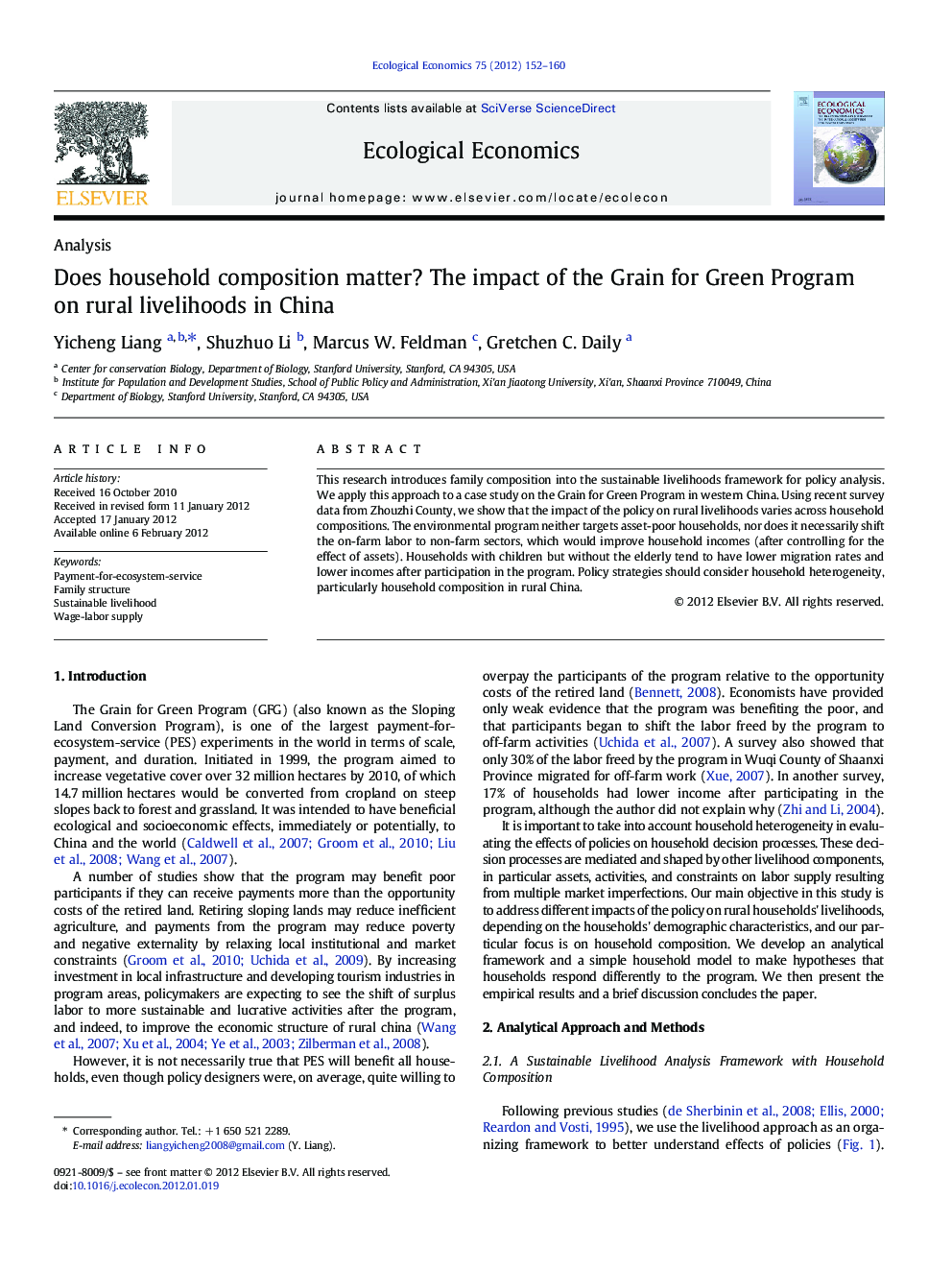| Article ID | Journal | Published Year | Pages | File Type |
|---|---|---|---|---|
| 5050398 | Ecological Economics | 2012 | 9 Pages |
This research introduces family composition into the sustainable livelihoods framework for policy analysis. We apply this approach to a case study on the Grain for Green Program in western China. Using recent survey data from Zhouzhi County, we show that the impact of the policy on rural livelihoods varies across household compositions. The environmental program neither targets asset-poor households, nor does it necessarily shift the on-farm labor to non-farm sectors, which would improve household incomes (after controlling for the effect of assets). Households with children but without the elderly tend to have lower migration rates and lower incomes after participation in the program. Policy strategies should consider household heterogeneity, particularly household composition in rural China.
⺠We introduce family composition into the sustainable livelihoods framework for policy analysis. ⺠The SLCP neither targets asset-poor households, nor does it necessarily shift the on-farm labor to non-farm sectors. ⺠Participating Households with children but without the elderly tend to have lower migration rates and lower incomes.
